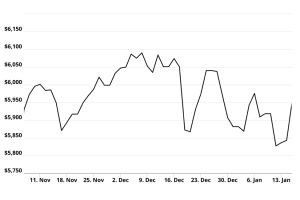
Mullen Automotive (NASDAQ:MULN), an emergent player in the electric vehicle (EV) sector, witnessed its stock spike earlier on Friday, although it receded a bit as the day wore on. While there was no specific news directly tied to the company today, Mullen had previously unveiled its acquisition of battery pack production assets. Moreover, the onset of the United Auto Workers (UAW) strike seems to have buoyed the speculative spirits surrounding MULN stock.
Mullen’s press release illuminated its strategic move to acquire battery pack production assets from Romeo Power, a forerunner in the realm of lithium-ion battery modules tailored for commercial vehicles. The acquisition, valued at approximately $3.5 billion, encompasses essential equipment, a rich inventory, and intellectual property pivotal for EV battery pack and module production.
“Purchasing the Romeo assets is consistent with our battery pack production path and previous announcements for our high voltage facility in Monrovia,” remarked Mullen CEO and Chairman David Michery. “Overall, this purchase further enhances our capabilities for battery pack production right here in California and the U.S.”
Further lifting its market presence, Mullen’s management has rolled out an updated itinerary for its “Strikingly Different” EV U.S. tour. Anticipated stops include Washington, D.C., and Philadelphia, Pennsylvania, with the tour eventually culminating in California.
How the UAW Strike Might Work in Mullen’s Favor
On another note, the UAW strike has inadvertently cast a favorable light on MULN stock. The intensifying discord between automotive executives and their workforce might throttle automotive production, with EV rollouts at the crux of the dispute.
With Tesla’s (NASDAQ:TSLA) monumental success in the backdrop, automakers worldwide are vying for a significant market share. The UAW, however, expresses its disgruntlement with the trend. UAW President Shawn Fain critically noted in an op-ed: “We will not let the EV industry be built on the backs of workers making poverty wages while CEOs line their pockets with government subsidies.”
Yet, established automakers are pressured to ensure adequate margins to hold their own against non-unionized competitors like Tesla, which inherently enjoys a cost advantage.
Wedbush Securities analysts recently highlighted the implications for MULN stock, stating, “[w]e believe a strike lasting longer than 4 weeks would be a body blow to the EV ambitions of GM and Ford in 1H24 and delay many aspects of this initial important EV push.”
The Larger Picture for MULN Stock
While Detroit grapples with its transitional challenges amid the global shift to EVs, it doesn’t inherently render MULN stock a straightforward acquisition. To put things into perspective, Mullen’s equity value has plummeted by an eye-watering 99% since the start of the year. Even factoring in the recent surge, the stock dipped 37% over the past month.
On the date of publication, Josh Enomoto did not have (either directly or indirectly) any positions in the securities mentioned in this article. The opinions expressed in this article are those of the writer, subject to the InvestorPlace.com Publishing Guidelines.



